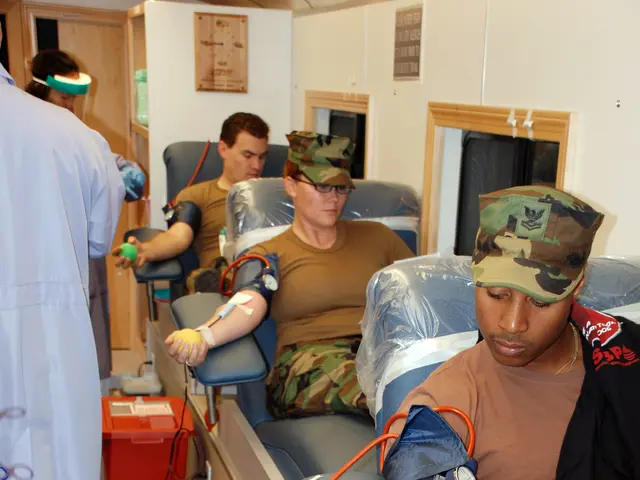Workers' Compensation and Medicare: Essential Facts for Understanding Interaction
Important Notice: Failing to Notify Medicare About Workers' Compensation Arrangements Can Result in Claim Denials and Reimbursement Obligations
Workers' compensation serves as insurance for employees who have suffered job-related injuries or illnesses. Responsibility for this benefit lies with the Office of Workers' Compensation Programs (OWCP) under the Department of Labor, offering coverage for federal employees, their families, and certain other groups.
For individuals enrolled in Medicare or eligible for the program in the near future, it's crucial to understand how workers' compensation benefits could potentially affect coverage for medical claims related to work-related injuries. This helps prevent complications regarding medical expenses caused by work accidents.
Impact of Workers' Comp Settlements on Medicare Coverage
Under Medicare's secondary payer policy, workers' compensation must be the primary payer for any treatment linked to a work-related injury. If immediate medical expenses arise before an individual receives their workers' compensation settlement, Medicare may pay first and initiate a recoupment process facilitated by the Benefits Coordination & Recovery Center (BCRC).
To avoid such recoupment procedures, the Centers for Medicare & Medicaid Services (CMS) typically monitor the amount an individual receives from workers' compensation for their injury- or illness-related medical care. In some cases, CMS may require the establishment of a workers' compensation Medicare set-aside arrangement (WCMSA) for these funds, only covering further care once the money in the WCMSA has been depleted.
Settlements Requiring Report to Medicare
Workers' compensation must submit a Total Payment Obligation to the Claimant (TPOC) to Medicare to ensure the correct portion of a person's medical expenses is covered. This represents the total amount of workers' compensation owed to the individual or on their behalf.
TPOCs are essential if a person is currently enrolled in Medicare based on their age or receiving Social Security Disability Insurance and the settlement amounts to $25,000 or more.
They are also required if the individual is not enrolled in Medicare but will qualify for the program within 30 months following the settlement date, and the settlement amount exceeds $250,000. Apart from workers' comp, a person must report settlements to Medicare if they file a liability or no-fault insurance claim.
Frequently Asked Questions
To address questions, contact Medicare at 800-MEDICARE (800-633-4227) or via TTY at 877-486-2048. During certain hours, a live chat is also available on Medicare.gov. Contacts relating to the Medicare recovery process can be made to the BCRC at 855-798-2627 (TTY 855-797-2627).
A WCMSA is voluntary, but if an individual wants to establish one, their workers' compensation settlement must be over $25,000 or $250,000 if they're eligible for Medicare within 30 months. It's also prohibited to use WCMSA funds for any purpose other than the designated intended use, as misuse may lead to claim denials and reimbursement obligations.
Additional Resources
Visit the Medicare hub for further resources aiming to guide you through the complexities of medical insurance.
- For individuals eligible for Medicare or those who will be enrolled soon, understanding the impact of workers' compensation benefits on health-and-wellness coverage can help prevent complications.
- Under Medicare's policy, therapies-and-treatments related to work-related injuries are primarily paid by workers' compensation, with Medicare's role being secondary and subject to recoupment if necessary.
- In order to ensure proper coverage, workers' compensation settlements exceeding $25,000 must be reported to Medicare, and a Total Payment Obligation to the Claimant (TPOC) must be submitted.
- Proper nutrition and health-systems management are essential for recovery, but using funds from a workers' compensation Medicare set-aside arrangement (WCMSA) other than its designated purpose is prohibited and could lead to claim denials and reimbursement obligations.








